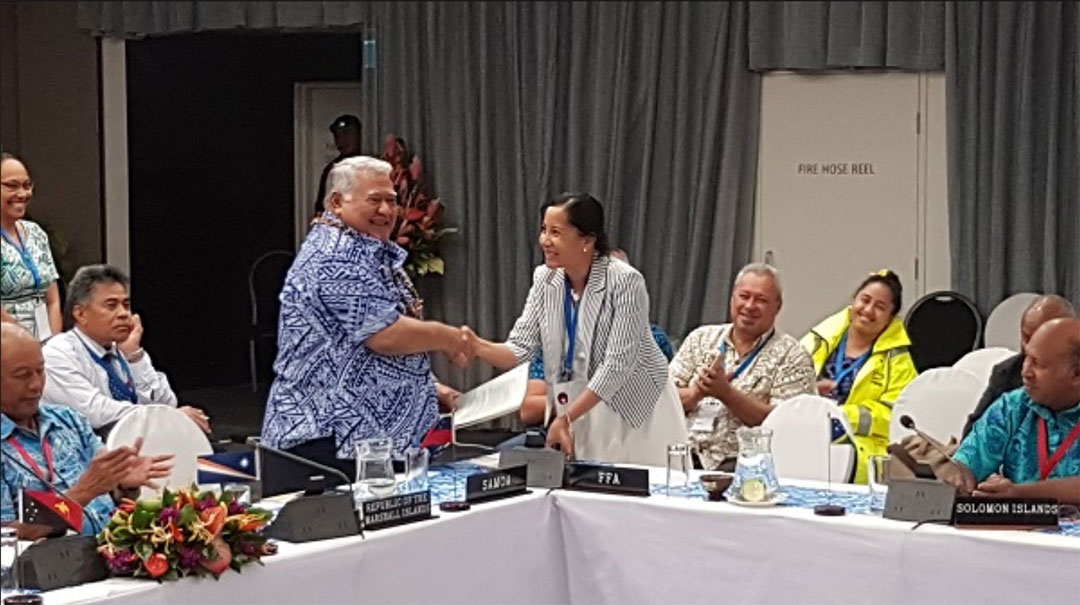Pacific island partners fighting to protect fisheries

Tom Abke
Pacific island fisheries are being menaced by illegal, unreported and unregulated (IUU) fishing, marine pollution and climate shocks, placing islanders’ food security and way of life at risk. These findings were announced at the inaugural Pacific Regional Fisheries Ministers Meeting on August 27, 2020, in Noumea, New Caledonia, which was hosted by the Pacific Islands Forum (PIF).
A collective response from Pacific island nations and air and sea surveillance support from neighbors is mitigating some of these threats. At the virtual meeting, Cook Islands Prime Minister and Minister of Marine Resources Henry Puna called the fisheries an “undeniable and tangible resource, asset and lifeline that we all possess.”
About 89% of Pacific island households eat fish or seafood weekly, and 30% participate in fishing, the Coastal Fisheries Report Card stated, according to a PIF news release. The report card also showed a decline in the status of key fish species as well as of reef and ecosystem health.
IUU fishing remains an ongoing challenge. Every year between 3.7 million and 7.2 million tons of fish are stolen from the waters of Pacific coastal nations, according to a 2019 study by the World Resources Institute. During the virtual meeting, ministers agreed that the PIF Fisheries Agency Integrated Aerial Surveillance Program is countering the threat, and they thanked Australia for funding the program.
The program adds 1,400 hours of aerial surveillance by a pair of King Air 200 planes to the 300 hours performed annually by Australia, France, New Zealand and the United States, reported Radio New Zealand. Island nations can direct where the surveillance will occur.
The surveillance is part of the Pacific Maritime Security Program targeting IUU fishing, reported Australia’s Department of Defence, which funds and manages the program. The program also is replacing patrol boats with newer, more advanced vessels under the Pacific Patrol Boat program. Launched in 2016, that program will deliver 21 patrol boats by 2023 to 12 Pacific island nations. (Pictured: Western Samoa officials agree to join an integrated aerial surveillance program during a 2019 meeting of the Pacific Islands Forum.)
To reduce marine pollution, ministers favored equipping ports to collect fishing vessel waste. They called for collaboration to address the impact of discarded fishing gear, “especially on coastal fisheries and coral reefs.”
The ministers also agreed that fisheries could be made more climate-resilient through technological advances, research, training, management and regional collaboration.
Tom Abke is a FORUM contributor reporting from Singapore.




